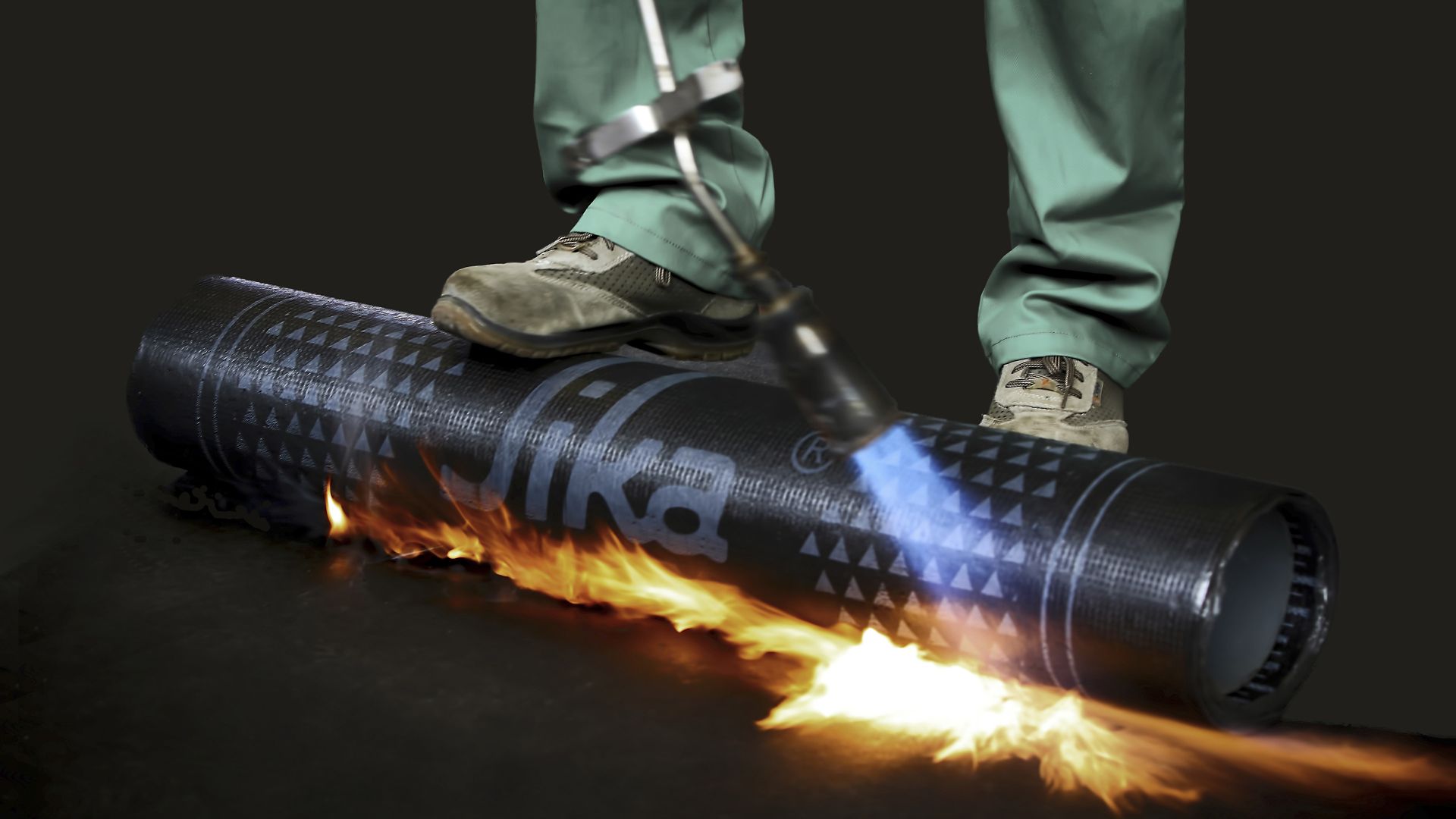Bitumen, also known as asphalt, is a sticky, black and highly viscous liquid or semi-solid form of petroleum. Thanks to its waterproofing qualities, it is widely used in construction. Bituminous membranes are perfect for waterproofing roofs, basements, below-ground structures, bridges and other structures.
Products Range
Typical Application Fields for Bitumen
Roofing
Terraces
Below-Grade Structures
Basements
Podiums
Bridge Decks
Tank Lining
Green Roofs
Sika Has Five Main Types of Bitumen Technologies
Torch-applied Bituminous Membranes
Once applied, Sika’s bituminous membranes are a thin layer of watertight material fully-bonded to the surface. It is a flexible system, able to maintain its waterproof capacity without causing cracks.
Main Uses
- Retaining walls, basements and below-ground structures
- Flat roofs under protective layers of ballast
- Balconies and terraces under tiles
- Wet areas
- Underground car parks
- Bridges
- Raft slabs and foundations
- Protection of various substrates in a wide range of applications
Advantages
- Fully-bonded system
- Resistant to the most extreme weather conditions
- Ease of maintenance
- Excellent mechanical properties
- High resistance to mechanical damage and punctures
Self-adhesive Bituminous Membranes
Self-adhesive bituminous membranes are covered by a release liner, which is removed during application.
Main Uses
- Wood substrates
- Flammable areas
- Small areas, vertical surfaces or those areas with difficult access
- Retaining walls, basements and below-ground structures
Advantages
- No torch needed
- Safer, faster installation
- No special equipment needed
- Excellent adhesion, even at low temperatures
Self-adhesive Bituminous Tapes
Sika also has self-adhesive, polymer-modified bituminous sealing tapes which are laminated with aluminum foil on the upper side and contain no reinforcement.
Main Uses
- Sealing and repairing building cracks, roofs, sheet metal work, bituminous felts and other types of roofing sheet membranes
Advantages
- No torch needed
- UV-resistant
- Excellent watertightness
- Multi-purpose tape
- Flexible and easy to apply
- Safer, faster installation
Hot Melt Bitumen
Bitumen hot melt is a polymer-modified bitumen, either elastomeric or plastomeric, packed in a solid block state. For application, the block is heated and applied onto the substrate, forming a fully-bonded waterproofing layer.
Main Uses
- Roofing, such as green roofs
- Podium decks
- Balconies and terraces
- Car parking garages
- Civil engineering projects, such as foundations, slabs and retaining walls
- Bridges and access roads
- As an adhesive to bituminous sheets or insulation boards, for example
Advantages
- Solid-modified bitumen
- Provides a strong, lasting bond
- In situ waterproofing - local application exactly where it's needed
- Excellent alternative for areas with many complex details
Bitumen LAM (Cold-applied, Liquid-applied Membrane)
Bitumen liquid-applied membranes are the perfect solution for seamless, fully-adhered and safe systems. They are polymer-modified bitumen emulsions which require no torch or flame to be applied. They are available as water-based or solvent-based coatings.
Main Uses
- Below-ground areas facing ground moisture, such as foundations
- Wet areas
- Swimming pools
- Renovation projects
- Detailing
- Typically used for residential and industrial buildings
- As an adhesive to bond lightweight thermal insulation boards
Advantages
- No torch needed
- Fully-bonded, seamless system
- Crack-bridging capability
- Safer, faster installation

